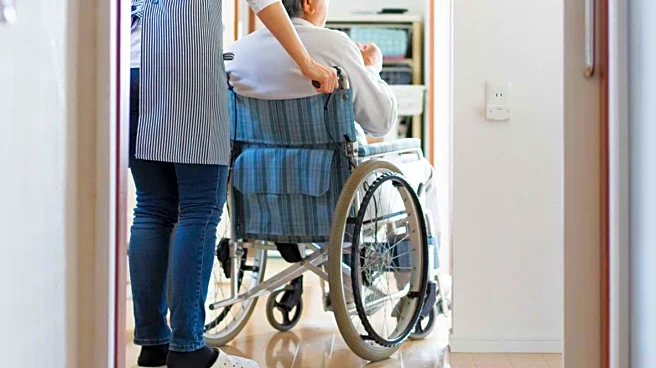What's Happening?
Senator Susan Collins has introduced bipartisan legislation aimed at expanding the healthcare workforce dedicated to caring for older Americans. The Geriatrics Workforce Improvement Act seeks to reauthorize two key programs: the Geriatric Workforce Enhancement Program and the Geriatric Academic Career Awards program. These initiatives are designed to address the shortage of geriatric health professionals as the U.S. population ages. The bill proposes funding of $48.2 million per year over the next five years to train healthcare workers and support emerging leaders in geriatric education. With Maine having the oldest population in the nation, the bill is particularly significant for the state, which has seen the establishment of its first Geriatric Workforce Enhancement Program.
Why It's Important?
The introduction of this bill is crucial in addressing the growing demand for geriatric care in the United States. As the population ages, the need for specialized healthcare professionals becomes more pressing. The bill aims to fill the projected shortage of geriatricians and enhance the training of healthcare workers to meet the complex needs of older adults. By investing in geriatric education and workforce development, the legislation seeks to improve healthcare outcomes for seniors, reduce healthcare costs, and ensure that older Americans receive the care they need. This initiative could set a precedent for other states facing similar demographic challenges.
What's Next?
The bill's progress will be monitored by healthcare professionals, policymakers, and advocacy groups focused on aging and healthcare. If passed, it will provide significant funding to expand geriatric training programs and support the development of healthcare professionals specializing in elder care. The legislation could lead to increased collaboration between educational institutions and healthcare providers to address the needs of the aging population.









